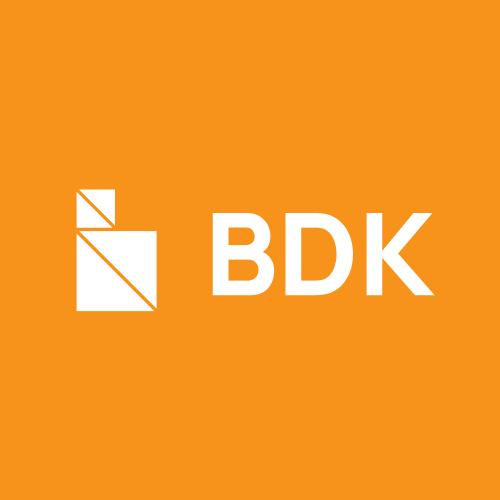7b1ad1b62914a26d6f445364ace4e784bb2901c2 Verify signatures after signing (Scott Robinson) Pull request description: ### Description Verify signatures after signing As per [BIP-340, footnote 14][fn]: > Verifying the signature before leaving the signer prevents random or > attacker provoked computation errors. This prevents publishing invalid > signatures which may leak information about the secret key. It is > recommended, but can be omitted if the computation cost is prohibitive. [fn]: https://github.com/bitcoin/bips/blob/master/bip-0340.mediawiki#cite_note-14 ### Notes to the reviewers How do we test this? ### Checklists #### All Submissions: * [ ] I've signed all my commits * [x] I followed the [contribution guidelines](https://github.com/bitcoindevkit/bdk/blob/master/CONTRIBUTING.md) * [x] I ran `cargo fmt` and `cargo clippy` before committing ACKs for top commit: afilini: re-ACK 7b1ad1b62914a26d6f445364ace4e784bb2901c2 Tree-SHA512: 7319db1f8cec2fcfe4ac443ab5728893f9fb6133b33331b35ec6910662c45de8a7cdcf80ac1f3bb435815e914ccf639682a5c07ff0baef42605bf044a34a8232
BDK

A modern, lightweight, descriptor-based wallet library written in Rust!
Project Homepage | Documentation
About
The bdk library aims to be the core building block for Bitcoin wallets of any kind.
- It uses Miniscript to support descriptors with generalized conditions. This exact same library can be used to build single-sig wallets, multisigs, timelocked contracts and more.
- It supports multiple blockchain backends and databases, allowing developers to choose exactly what's right for their projects.
- It's built to be cross-platform: the core logic works on desktop, mobile, and even WebAssembly.
- It's very easy to extend: developers can implement customized logic for blockchain backends, databases, signers, coin selection, and more, without having to fork and modify this library.
Examples
Sync the balance of a descriptor
use bdk::Wallet;
use bdk::database::MemoryDatabase;
use bdk::blockchain::ElectrumBlockchain;
use bdk::SyncOptions;
use bdk::electrum_client::Client;
use bdk::bitcoin::Network;
fn main() -> Result<(), bdk::Error> {
let blockchain = ElectrumBlockchain::from(Client::new("ssl://electrum.blockstream.info:60002")?);
let wallet = Wallet::new(
"wpkh([c258d2e4/84h/1h/0h]tpubDDYkZojQFQjht8Tm4jsS3iuEmKjTiEGjG6KnuFNKKJb5A6ZUCUZKdvLdSDWofKi4ToRCwb9poe1XdqfUnP4jaJjCB2Zwv11ZLgSbnZSNecE/0/*)",
Some("wpkh([c258d2e4/84h/1h/0h]tpubDDYkZojQFQjht8Tm4jsS3iuEmKjTiEGjG6KnuFNKKJb5A6ZUCUZKdvLdSDWofKi4ToRCwb9poe1XdqfUnP4jaJjCB2Zwv11ZLgSbnZSNecE/1/*)"),
Network::Testnet,
MemoryDatabase::default(),
)?;
wallet.sync(&blockchain, SyncOptions::default())?;
println!("Descriptor balance: {} SAT", wallet.get_balance()?);
Ok(())
}
Generate a few addresses
use bdk::{Wallet, database::MemoryDatabase};
use bdk::wallet::AddressIndex::New;
fn main() -> Result<(), bdk::Error> {
let wallet = Wallet::new(
"wpkh([c258d2e4/84h/1h/0h]tpubDDYkZojQFQjht8Tm4jsS3iuEmKjTiEGjG6KnuFNKKJb5A6ZUCUZKdvLdSDWofKi4ToRCwb9poe1XdqfUnP4jaJjCB2Zwv11ZLgSbnZSNecE/0/*)",
Some("wpkh([c258d2e4/84h/1h/0h]tpubDDYkZojQFQjht8Tm4jsS3iuEmKjTiEGjG6KnuFNKKJb5A6ZUCUZKdvLdSDWofKi4ToRCwb9poe1XdqfUnP4jaJjCB2Zwv11ZLgSbnZSNecE/1/*)"),
bitcoin::Network::Testnet,
MemoryDatabase::default(),
)?;
println!("Address #0: {}", wallet.get_address(New)?);
println!("Address #1: {}", wallet.get_address(New)?);
println!("Address #2: {}", wallet.get_address(New)?);
Ok(())
}
Create a transaction
use bdk::{FeeRate, Wallet, SyncOptions};
use bdk::database::MemoryDatabase;
use bdk::blockchain::ElectrumBlockchain;
use bdk::electrum_client::Client;
use bdk::wallet::AddressIndex::New;
use bitcoin::base64;
use bitcoin::consensus::serialize;
fn main() -> Result<(), bdk::Error> {
let blockchain = ElectrumBlockchain::from(Client::new("ssl://electrum.blockstream.info:60002")?);
let wallet = Wallet::new(
"wpkh([c258d2e4/84h/1h/0h]tpubDDYkZojQFQjht8Tm4jsS3iuEmKjTiEGjG6KnuFNKKJb5A6ZUCUZKdvLdSDWofKi4ToRCwb9poe1XdqfUnP4jaJjCB2Zwv11ZLgSbnZSNecE/0/*)",
Some("wpkh([c258d2e4/84h/1h/0h]tpubDDYkZojQFQjht8Tm4jsS3iuEmKjTiEGjG6KnuFNKKJb5A6ZUCUZKdvLdSDWofKi4ToRCwb9poe1XdqfUnP4jaJjCB2Zwv11ZLgSbnZSNecE/1/*)"),
bitcoin::Network::Testnet,
MemoryDatabase::default(),
)?;
wallet.sync(&blockchain, SyncOptions::default())?;
let send_to = wallet.get_address(New)?;
let (psbt, details) = {
let mut builder = wallet.build_tx();
builder
.add_recipient(send_to.script_pubkey(), 50_000)
.enable_rbf()
.do_not_spend_change()
.fee_rate(FeeRate::from_sat_per_vb(5.0));
builder.finish()?
};
println!("Transaction details: {:#?}", details);
println!("Unsigned PSBT: {}", base64::encode(&serialize(&psbt)));
Ok(())
}
Sign a transaction
use bdk::{Wallet, SignOptions, database::MemoryDatabase};
use bitcoin::base64;
use bitcoin::consensus::deserialize;
fn main() -> Result<(), bdk::Error> {
let wallet = Wallet::new(
"wpkh([c258d2e4/84h/1h/0h]tprv8griRPhA7342zfRyB6CqeKF8CJDXYu5pgnj1cjL1u2ngKcJha5jjTRimG82ABzJQ4MQe71CV54xfn25BbhCNfEGGJZnxvCDQCd6JkbvxW6h/0/*)",
Some("wpkh([c258d2e4/84h/1h/0h]tprv8griRPhA7342zfRyB6CqeKF8CJDXYu5pgnj1cjL1u2ngKcJha5jjTRimG82ABzJQ4MQe71CV54xfn25BbhCNfEGGJZnxvCDQCd6JkbvxW6h/1/*)"),
bitcoin::Network::Testnet,
MemoryDatabase::default(),
)?;
let psbt = "...";
let mut psbt = deserialize(&base64::decode(psbt).unwrap())?;
let finalized = wallet.sign(&mut psbt, SignOptions::default())?;
Ok(())
}
Testing
Unit testing
cargo test
Integration testing
Integration testing require testing features, for example:
cargo test --features test-electrum
The other options are test-esplora, test-rpc or test-rpc-legacy which runs against an older version of Bitcoin Core.
Note that electrs and bitcoind binaries are automatically downloaded (on mac and linux), to specify you already have installed binaries you must use --no-default-features and provide BITCOIND_EXE and ELECTRS_EXE as environment variables.
License
Licensed under either of
- Apache License, Version 2.0 (LICENSE-APACHE or http://www.apache.org/licenses/LICENSE-2.0)
- MIT license (LICENSE-MIT or http://opensource.org/licenses/MIT)
at your option.
Contribution
Unless you explicitly state otherwise, any contribution intentionally submitted for inclusion in the work by you, as defined in the Apache-2.0 license, shall be dual licensed as above, without any additional terms or conditions.




